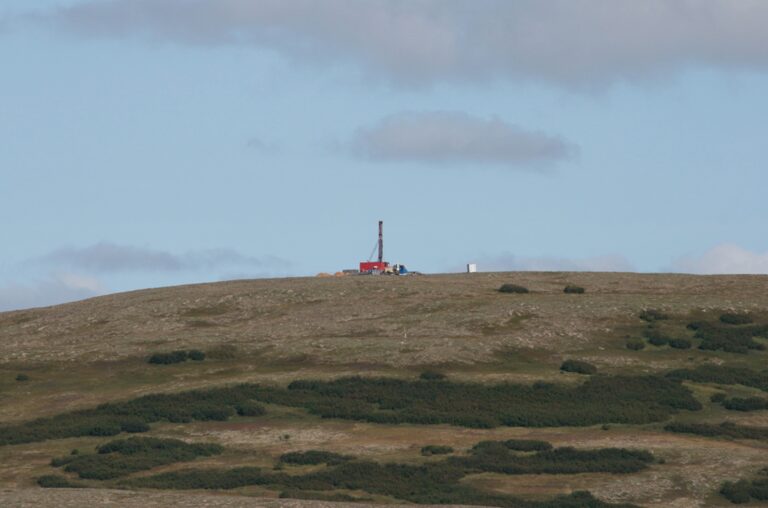By MICHAEL TAVOLIERO
A Historical Perspective
For much of American history, old-age independence rested on family, community, and personal savings. Before the mid-20th century, security came from relatives, fraternal groups, churches, and modest employer pensions and not government mandates, although there were plenty attempted. The 1935 Social Security Act created a federal safety net, but it was never intended as the sole source of retirement.
Over time, however, the balance shifted. Through creeping normality, what was once supplemental became primary. Each incremental expansion of government oversight, Social Security taxation, employer-controlled pensions evolving into 401(k)s, Medicare’s creation in 1965, and the slow squeeze on private health insurance options for seniors, became normalized until few questioned whether seniors truly had freedom of choice.
Today’s Realities for Seniors
Seniors now account for nearly one in five Americans. This is a significant increase that impacts healthcare, retirement systems, and societal planning, which our state and federal governments are squandering our tax dollars by maintaining these systems to the point of bursting and failure.
The US Census Bureau’s 2023–2024 estimates show that adults aged 65 and older make up approximately 18.0% of the total U.S. population compared to about 6.8% of the U.S. population was age 65 or older in 1935. As of 2024, that translates to around 61.2 million seniors, compared to a shrinking population of children under 18. The senior share continues climbing for at least the next 25 years, approaching or surpassing 22% by 2040–2050
At almost 74, I see myself and my peers trapped in a “new normal.” After 65, unless still employed under a company plan, seniors are barred from private health insurance and funneled solely into Medicare or Medicaid, stripping choice. Retirement savings are likewise bound by federally controlled devices, 401(k)s, IRAs, mandatory withdrawals, and Social Security taxation, leaving seniors wards of the state, hemmed in by labyrinthine rules.
The result? Seniors are too often treated not as seasoned citizens with a lifetime of experience, but as a diminished class. Have you ever been spoken to in patronizing tones, managed through bureaucratic processes, and left to navigate systems so complex that you feel more like a dependent child than a free adult?
The irony? Had individuals been allowed to invest freely, for example, in the S&P 500, the outcome would have been far greater wealth and far less dependency.
- A worker paying 12.4% of wages into Social Security over 40 years (average $60,000 income = $7,440/year; total contributions ~$300,000 between worker + employer share) typically retires with a $2,000/month benefit (~$24,000/year).
- If that same $7,440/year had been invested in the S&P 500 (historic ~10% annual return), after 40 years it would exceed $3 million. Even a conservative withdrawal of 4% annually would yield $120,000/year. That’s five times Social Security!
- Similarly, IRAs and 401(k)s are bound by government-imposed rules on contributions, penalties for early withdrawals, and required minimum distributions. The government “permits” access to your own money only under its conditions not yours.
The healthcare story is no better. Private competition has been locked out of the senior market, replaced by a federal monopoly where innovation and personalization are stifled. Over the past 40 years, the results are undeniable:
- Healthcare costs have skyrocketed. In 1980, U.S. healthcare spending was about 8.9% of GDP. By 2020, it reached 19.7% of GDP. That’s more than double. Seniors bore the brunt, as Medicare’s expansion and bureaucratic price-setting created distortions throughout the market.
- Out-of-pocket costs grew relentlessly. In 1980, the average senior paid roughly $1,200/year in today’s dollars for premiums and expenses. By 2020, that figure exceeded $6,600/year. That’s a fivefold increase.
- Administrative bloat now consumes 25–30 cents of every healthcare dollar. That means paperwork, billing codes, compliance, and regulatory overhead born of government micromanagement stifles senior wealth. In contrast, competitive sectors like elective surgery, dentistry, LASIK, and cosmetic care kept inflation low with transparent, market-driven pricing.
- Medicare distorted prices systemwide. By fixing reimbursement rates, Medicare created cross-subsidization. Hospitals raised private insurance rates to cover shortfalls, and private insurers responded with higher premiums. The result: a 40-year spiral of double-digit percentage increases nearly every decade.
- Obamacare cemented creeping normality: marketed as expanding choice, it instead narrowed options, inflated costs, and entrenched government as the broker of senior care. Though few seniors enrolled, it drove systemic cost inflation by eliminating bare-bones plans, forcing healthier Americans into subsidized pools, and expanding Medicaid tightening federal control and leaving no private benchmarks against Medicare’s inefficiencies.
What If Private Regulation Had Been Abandoned?
If, instead of expanding Medicare and layering on regulations, government had allowed a true private market:
- Healthcare costs would have tracked closer to general inflation. Over the last 40 years, general inflation averaged 3.5% annually, while healthcare inflation averaged 7–9% annually. Had healthcare merely followed the inflation curve, today’s annual per-capita spending (~$13,000) would be closer to $5,000.
- Innovation would have reduced costs rather than inflated them. Look at deregulated sectors: LASIK eye surgery dropped from $2,200 per eye in 1999 to under $1,000 today, while quality improved. Elective cosmetic procedures followed similar deflationary trends. In contrast, heavily regulated hospital services went up 200–300%.
- Seniors must not be trapped. A deregulated system would have allowed insurers to create competitive senior plans, bundled catastrophic coverage, primary care memberships, or health savings models, instead of funneling every American into Medicare at 65.
The Parallel with Retirement
Just as Social Security turned wealth accumulation into dependency, Medicare turned health care into bureaucracy. In both cases, creeping normality was the mechanism:
- First, a small payroll tax.
- Then, mandatory enrollment at 65.
- Then, expanding covered services and reimbursement rules.
- Then, more regulations to “control costs.”
- The end result: a system twice as expensive as it needed to be, with seniors stripped of choice.
In other words, just as the S&P 500 would have multiplied retirement savings compared to Social Security, a deregulated private health system would have halved costs compared to Medicare’s bureaucratic monopoly.
The Role of Creeping Normality
This is creeping normality at work: slow, imperceptible change that becomes accepted as ordinary. First, a “modest” payroll tax. Then, a restriction on private options. Then, another layer of regulation. Each step seemed minor, even justified at the time, but together they have redefined the landscape of aging. As one commentator put it: “First it’s one extra fee on your bill, then two, then ten and before long you’re congratulating yourself for finding a company that only robs you politely.” We seniors are congratulating ourselves for surviving in a system that systematically erodes choice, dignity, and independence.
The Need for Change
But acceptance cannot be the final word. My generation, the very generation that fought for civil rights, stood against wars, and pioneered cultural revolutions, cannot simply acquiesce to being infantilized in our later years. Change is not only possible; it is necessary.
Options for reform include:
- Re-opening private markets for senior health insurance to allow competition and innovation rather than a government monopoly.
- Simplifying retirement regulations to reduce punitive withdrawal requirements and restoring autonomy to retirees managing their savings.
- Strengthening local and community-based care models to empower states, tribes, and nonprofits to offer health and retirement solutions tailored to their people.
- Protecting dignity in aging by revising policies that treat seniors as dependents rather than decision-makers.
Conclusion
The lesson of history is that creeping normality always ends in crisis if left unchallenged. Government will always seize on that crisis to further limit freedom. My generation has witnessed freedoms eroded slowly enough that many hardly noticed until it was too late. Today, seniors face systems that may provide survival but rarely respect. There is only one method to reclaim that respect, to insist on dignity, independence, and choice. Government must stop managing us!
Unlike the average 65-year-old funneled into Medicare and bound by Social Security rules, members of Congress enjoy lifelong access to the Federal Employees Health Benefits Program, keeping private insurance options after retirement, and a generous pension system that can pay 80% of their salary, indexed for inflation. The contrast is stark: lawmakers design systems of dependence for ordinary seniors while exempting themselves with choice, security, and dignity.
And that is the bitter irony: the very politicians who trap ordinary seniors in dependency have carved out for themselves freedom of choice, private coverage, and secure pensions. If dignity and independence are good enough for Congress, they are good enough for every American.
If the past teaches us anything, it is that change begins when ordinary people refuse to accept the “new normal.” At 74, I may be perplexed by my generation, but I am not resigned.
Michael Tavoliero: Why HB 57 missed the mark on education reform
Michael Tavoliero: Coolidge’s Code, the ethics lesson some of Alaska’s leaders forgot
Michael Tavoliero: Alaska’s future under bureaucratic drift — the quiet surrender
Michael Tavoliero: Alaska’s energy dilemma — sitting on riches, but settling for ruin








